inSTEM 2023
The second inSTEM conference took place in Melbourne, 19–21 September 2023, at RMIT’s iconic Storey Hall.
inSTEM is a networking and career development conference for people from marginalised or underrepresented groups in STEM, and their allies. Originally developed by EQUS’ EQUIP committee, inSTEM is an initiative of the STEM-focused ARC Centres of Excellence. It offers attendees a safe space where they can meet, make connections and build relationships with other researchers and research scholars. It also provides attendees the opportunity to learn from experts on topics and strategies that support career development and progression, and to participate in discussions on how to create change that improves access, supports retention and champions success in STEM for individuals from marginalised or underrepresented groups.
After a hugely successful inaugural inSTEM conference in 2022, this year EQUS handed over the hosting reigns to the ARC Centre of Excellence for Transformative Meta-Optical Systems (TMOS). In additional to EQUS and TMOS, eight other Centres were involved in 2023: the ARC Centres of Excellence for All-Sky Astrophysics in Three Dimensions (ASTRO3D), Australian Biodiversity and Heritage (CABAH), Quantum Computation and Communication Technology (CQC2T), Innovations in Peptide and Protein Science (CIPPS), Dark Matter Particle Physics (CDM), Exciton Science, Future Low-Energy Electronics Technologies (FLEET) and Gravitational-Wave Discovery (OzGrav).
This year’s conference had a strong focus on disability, including neurodiversity, chronic illness and mental ill-health. In addition to panel discussions and presentations on these topics, the conference included a sensory safe space and on-site counsellors to support attendees. This felt like an important and timely step for equity and inclusion in STEM, with the introduction of legislation in April 2023 that sets out a code of practice for psychological safety in the workplace and puts a duty of care on workplaces to prevent psychological injury. This focus on disability also highlighted the extent to which there is still so much to learn (even for those from minority groups in STEM) about creating inclusive spaces for everyone, and still so much room for improvement in our workplaces.
This point was also emphasised through other key conference themes, including science communication and democratisation, and the importance of allies in creating meaningful change. Keynote speakers Dr Naomi Koh Belic (scientist, communicator and educator) and A/Prof. Alice Motion (Deputy Director, Sydney Nano Institute, and founder, Breaking Good) both spoke about outreach activities they have facilitated, and the importance of centring minority voices and making science accessible to all. Chris Lienert—leader of the Melbourne branch of Men Championing Change—was inspirational in his proactive approach to improving gender equity in tech and leadership as an ally.
All the sessions, and the Q&A from attendees, generated interesting and insightful discussions. This included an important, nuanced discussion on safe spaces and what it means to be inclusive, reiterating the point Lisa Annese (CEO of Diversity Council Australia) made at the 2022 inSTEM conference about encouraging people to bring their whole selves to work only within the agreed values of the organisation.
EQUS members who attended inSTEM provided the following testimonials:
Dr Xanthe Croot—EQUS Chief Investigator and member of the inSTEM steering and program committees—said inSTEM 2023 was an insightful, nourishing and unique conference: “The breadth of topics addressed by panellists and speakers was remarkable, from neurodiversity to careers beyond academia, burnout to project management, imposter syndrome to resilient research, chronic illnesses to mentorship. It was a privilege to hear from such a diverse range of speakers, listen to their stories and insights, and be challenged to continue striving to create good working environments for everyone. inSTEM was a chance to connect with researchers from a huge range of backgrounds and experiences.”
Maarten Christenhusz—EQUS PhD student and member of the inSTEM program committee—said inSTEM was an amazing experience: “The conference featured great speakers who shared invaluable insights with a little bit for everyone. The topics ranged from self-improvement to what we can and should do to create a more inclusive community. My favourite talks included ‘Science communication that isn’t crusty, old or white’ by Dr Naomi Koh Belic and ‘Unconscious bias and barriers to inclusion: where to from here?’ by Dr Bree Gorman. What set the conference apart was the emphasis on fostering a safe and inclusive atmosphere and encouraging open dialogue. This created a fantastic networking environment, allowing everyone to connect and share ideas. inSTEM proved to be a valuable platform for learning and I cannot wait for inSTEM 2024!”
We also cannot wait for inSTEM 2024, and to see this legacy of EQUS’ EQUIP committee continue to grow, even after EQUS comes to an end.
The 2023 inSTEM conference was made possible by platinum partners EQUS, TMOS and RMIT, bronze partners ASTRO3D, CABAH, CQC2T, CIPPS, CDM, Exciton Science, FLEET and OzGrav, accommodation partner Brady Hotels and counselling partner Invictus Health, and by the in-kind support of members of EQUS, TMOS, ASTRO3D, CABAH, CQC2T, Exciton Science, FLEET and OzGrav. EQUS extends particular thanks to the EQUS members (current and former) involved: Katrina Tune, Sarah Allen, Elisabeth Wagner, Maarten Christenhusz, Tim Hirsch, Xanthe Croot, Anthony O’Rourke and Eugene Sachkou.
Read more about inSTEM: https://www.chemistryworld.com/opinion/introducing-instem/4018305.article.
Major funding support

The Australian Research Council Centre of Excellence for Engineered Quantum Systems (EQUS) acknowledges the Traditional Owners of Country throughout Australia and their continuing connection to lands, waters and communities. We pay our respects to Aboriginal and Torres Strait Islander cultures and to Elders past and present.


